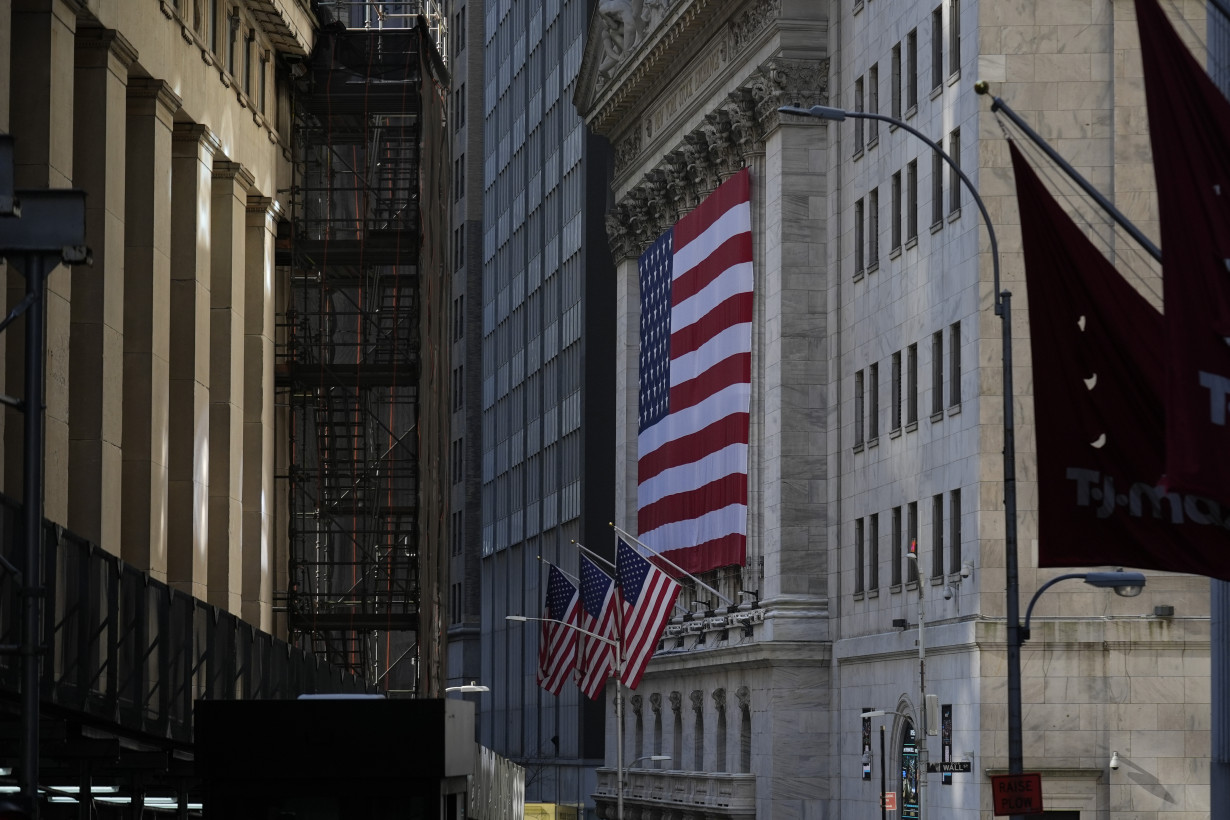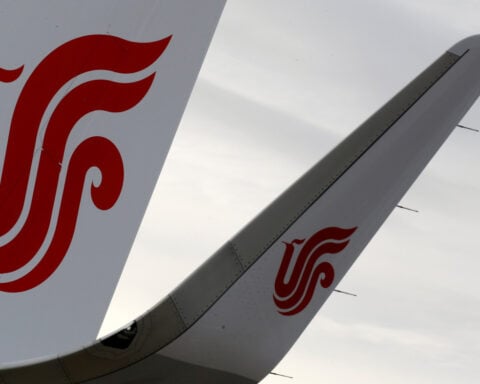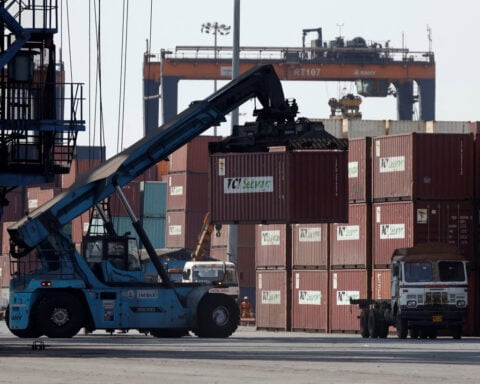NEW YORK (AP) — Wall Street swung back down on Tuesday, and its former superstars once again led the way.
The S&P 500 dropped 1.1% for its latest swerve in a scary ride, where it tumbled by 10% from its record and then rallied for two straight days. The Dow Jones Industrial Average fell 260 points, or 0.6%, and the Nasdaq composite sank 1.7%.
Tesla was one of the heaviest weights on the market after falling 5.3%. The electric-vehicle maker’s stock has been struggling on worries that it will lose sales because of anger at its CEO, Elon Musk, who has been leading efforts to cut spending by the U.S. government. EV rivals, meanwhile, continue to chip away at its business. China’s BYD on Monday announced an ultra-fast charging system that it says is nearly as quick as a gasoline fill-up.
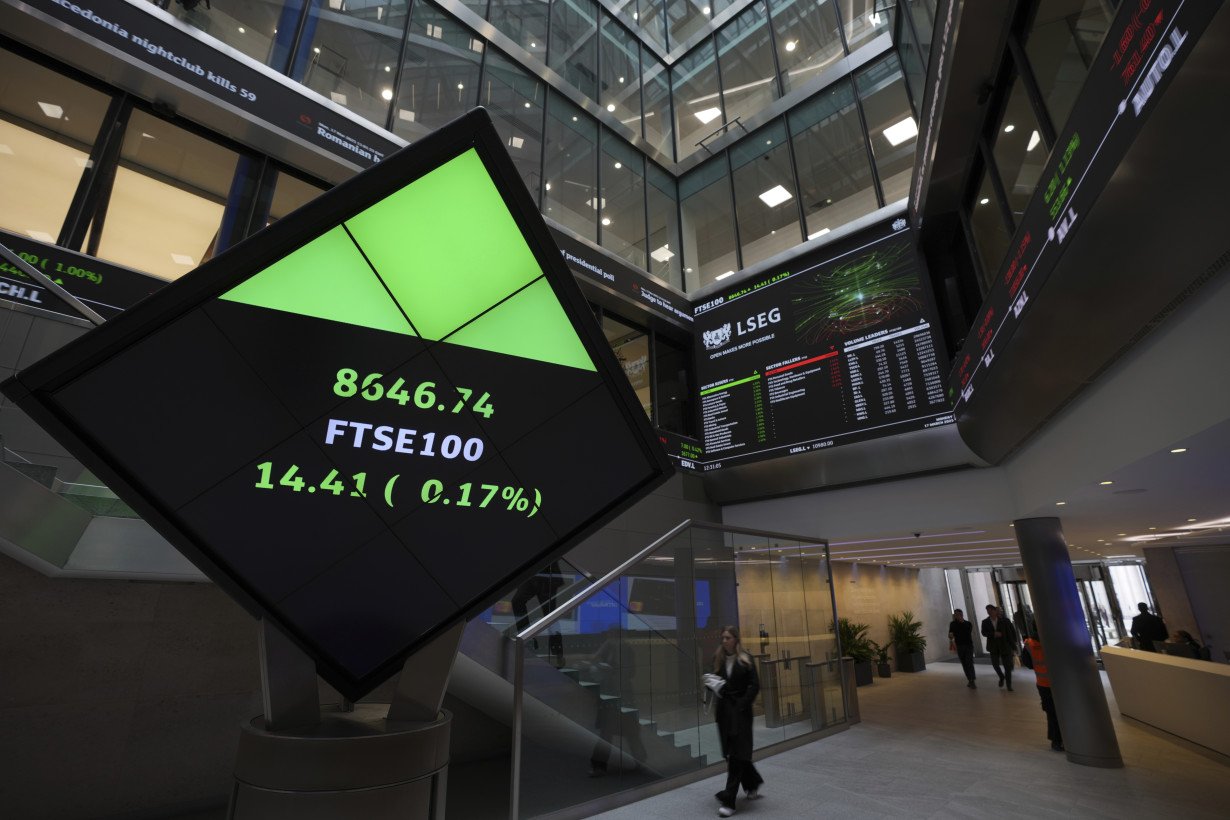
Alphabet sank 2.2% after the owner of Google said it would buy cybersecurity firm Wiz for $32 billion. It would be the company’s most expensive purchase in its 26-year history, and it could boost the tech giant’s in-house cloud computing amid burgeoning artificial-intelligence growth.
The drop for Big Tech continues a trend that’s taken hold in the market’s recent sell-off: Stocks whose momentum had earlier seemed unstoppable have since dropped sharply following criticism they had simply grown too expensive.
Chief among them have been stocks that zoomed higher in the frenzy around AI technology. Nvidia fell 3.3% as it hosted an event known as “AI Woodstock.” Super Micro Computer, which makes servers, lost 9.6%. Palantir Technologies, which offers an AI platform for customers, sank 4%.
They’ve been among the biggest losers as Wall Street retrenches amid uncertainty about what President Donald Trump’s trade war will do to the economy. Trump’s rat -a- tat announcements on tariffs and other policies have created worries that U.S. households and businesses could hold pull on their spending, which would hurt the economy.
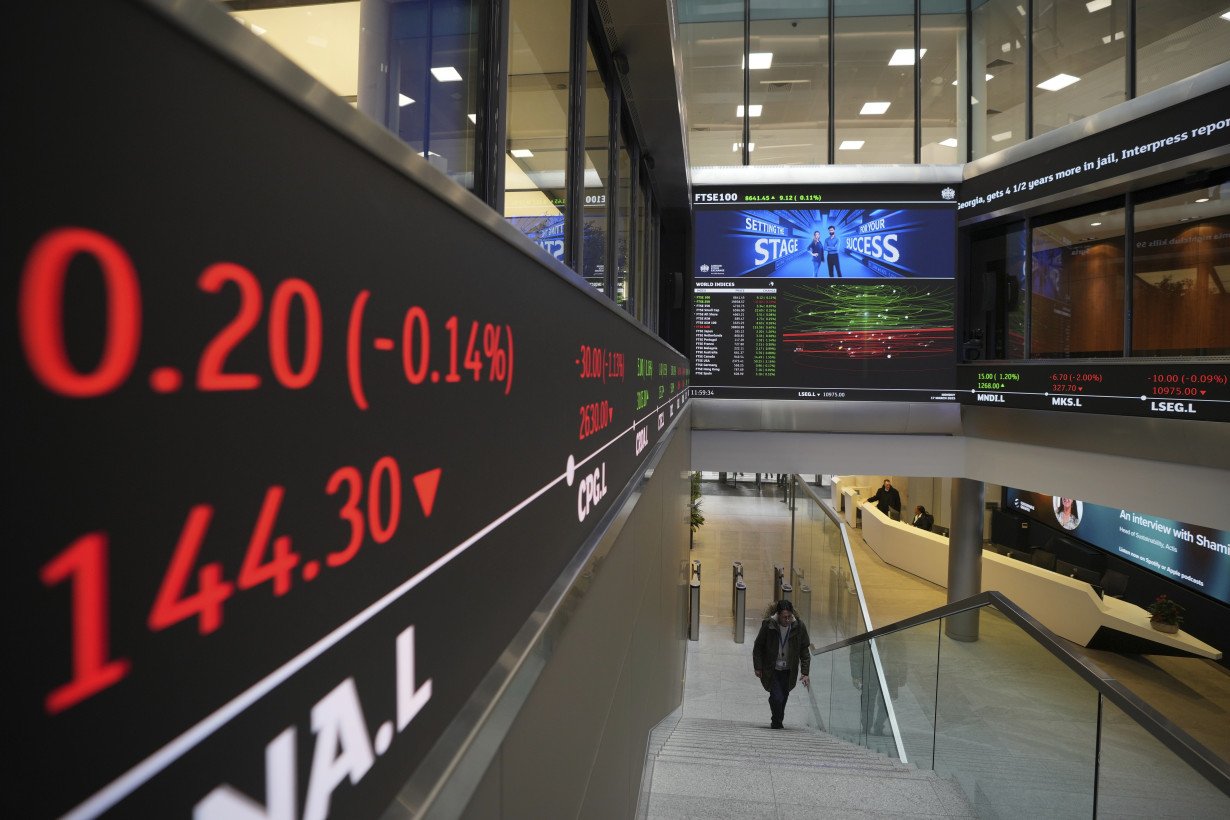
It all makes things more complicated for the Federal Reserve, which is beginning its latest meeting on interest-rate policy and will make its announcement on Wednesday.
The Fed could lower its main interest rate, which would make it easier for U.S. businesses and households to borrow. That in turn could boost the economy. But lower interest rates can also push inflation upward, and U.S. consumers have already begun bracing for higher inflation because of tariffs.
Virtually everyone on Wall Street expects the Fed to hold its main interest rate steady on Wednesday, as it waits for clues about how conditions play out. The job market, for the moment at least, appears relatively stable after the economy closed last year running at a solid rate.
More attention will be on the forecasts the Fed will publish after the meeting, showing where officials expect interest rates, inflation and the economy to head in upcoming years. For now, traders on Wall Street are largely expecting the Fed to deliver two or three cuts to rates by the end of 2025.
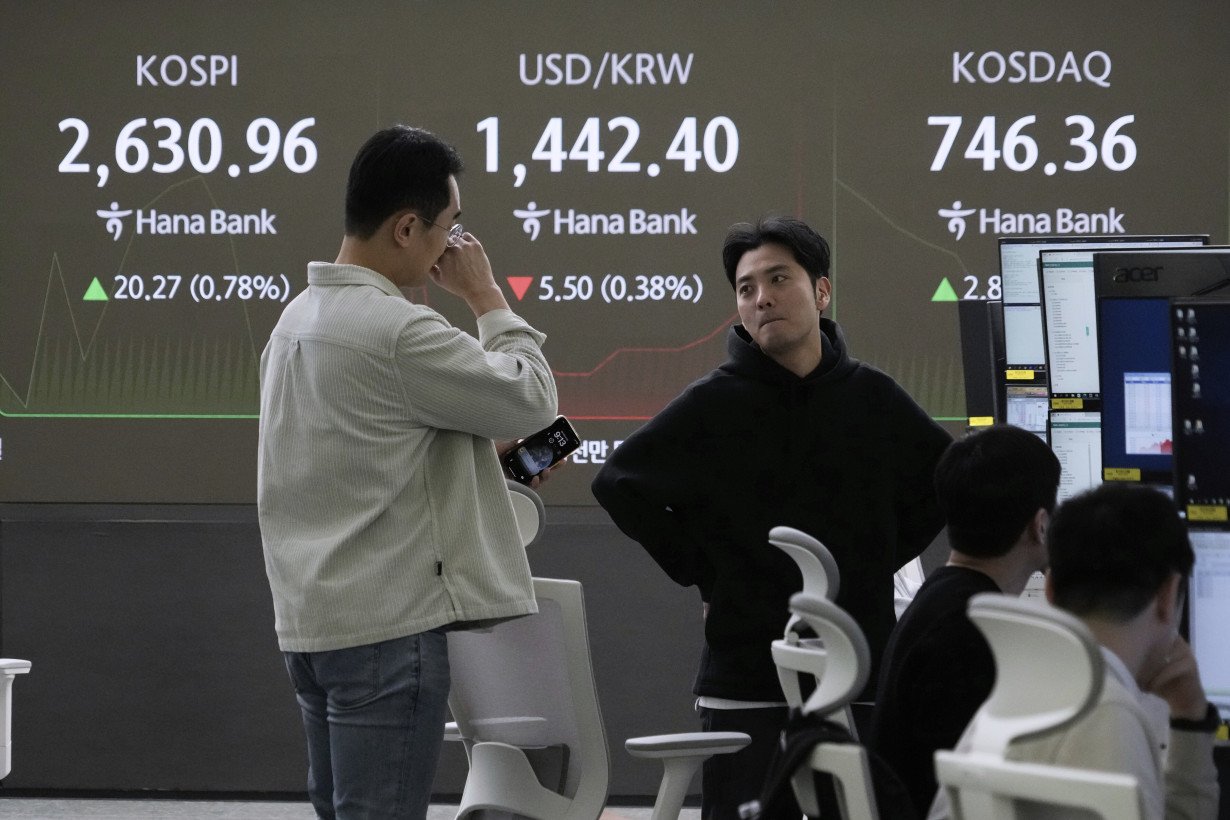
One of the reasons the U.S. stock market’s sell-off in recent weeks has “so far been orderly,” with the epicenter remaining within tech, may be because of faith that the Fed can protect Wall Street, according to strategists at Barclays. If conditions were to deteriorate quickly, the Fed could cut rates to support the economy.
Such faith “crucially could be put to test this week” if the Fed appears to be more concerned about inflation than a weakening economy, at least relative to the market’s expectations, according to the Barclays strategists led by Venu Krishna.
All told, the S&P 500 fell 60.46 points to 5,614.66 Tuesday. The Dow Jones Industrial Average dropped 260.32 to 41,581.31, and the Nasdaq composite fell 304.55 to 17,504.12.
In stock markets abroad, indexes rose across much of Europe and Asia. They’ve been largely doing better than the U.S. stock market this year, flipping a yearslong trend and forcing questions about whether the end has arrived for what was called “U.S. exceptionalism.”
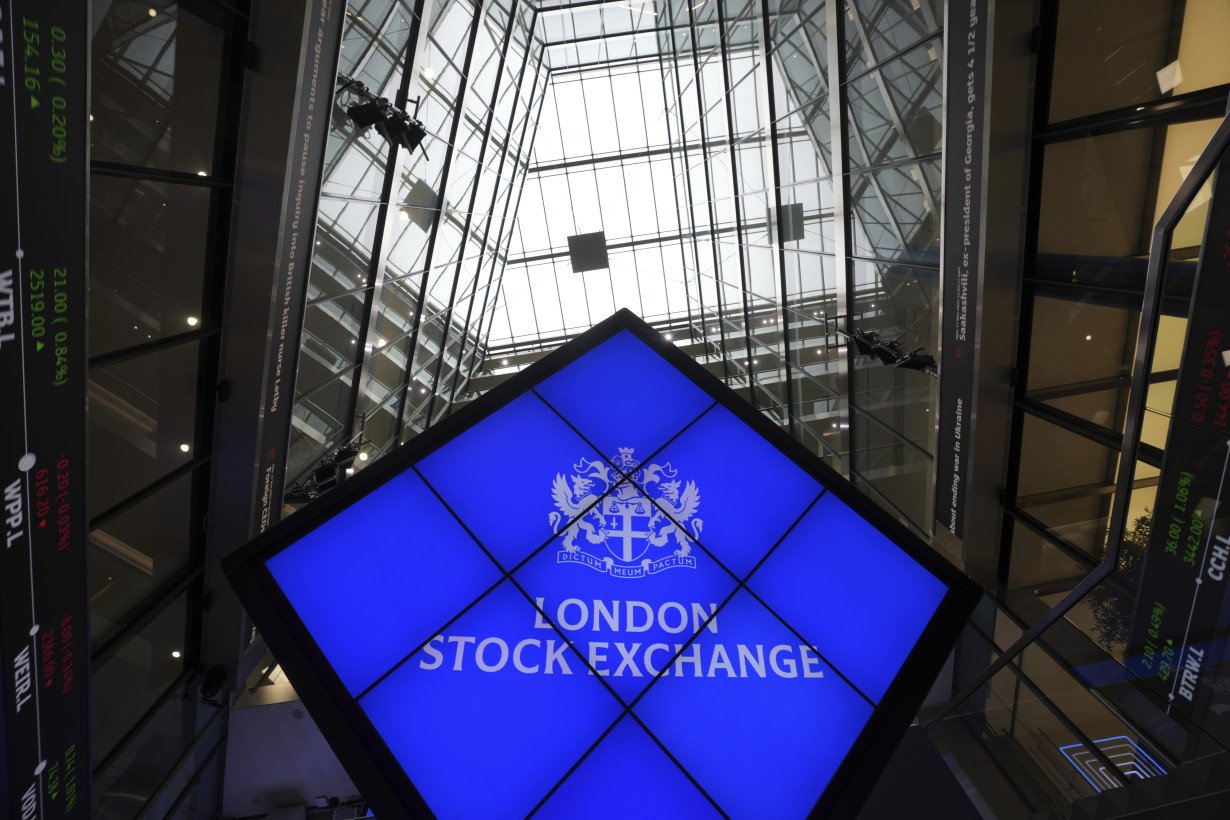
Japan’s Nikkei 225 rose 1.2%. Investors expect the Bank of Japan to keep its benchmark interest rate unchanged at a monetary policy board meeting due to wrap up Wednesday.
Trading on Indonesia’s stock exchange was suspended temporarily as the benchmark JSX tumbled as much as 6%. But it later pared the loss to 3.8%.
Investors have been sending shares of state-owned banks lower after the government launched a sovereign wealth fund, called Danantara, that so far has not proven popular. Worries over U.S. tariffs and other risks have also shaken confidence in the economy of the world’s fourth-most populous nation, said Budi Frensidy, a professor at the University of Indonesia.
In the bond market, the yield on the 10-year U.S. Treasury note fell to 4.28% from 4.31% late Monday.
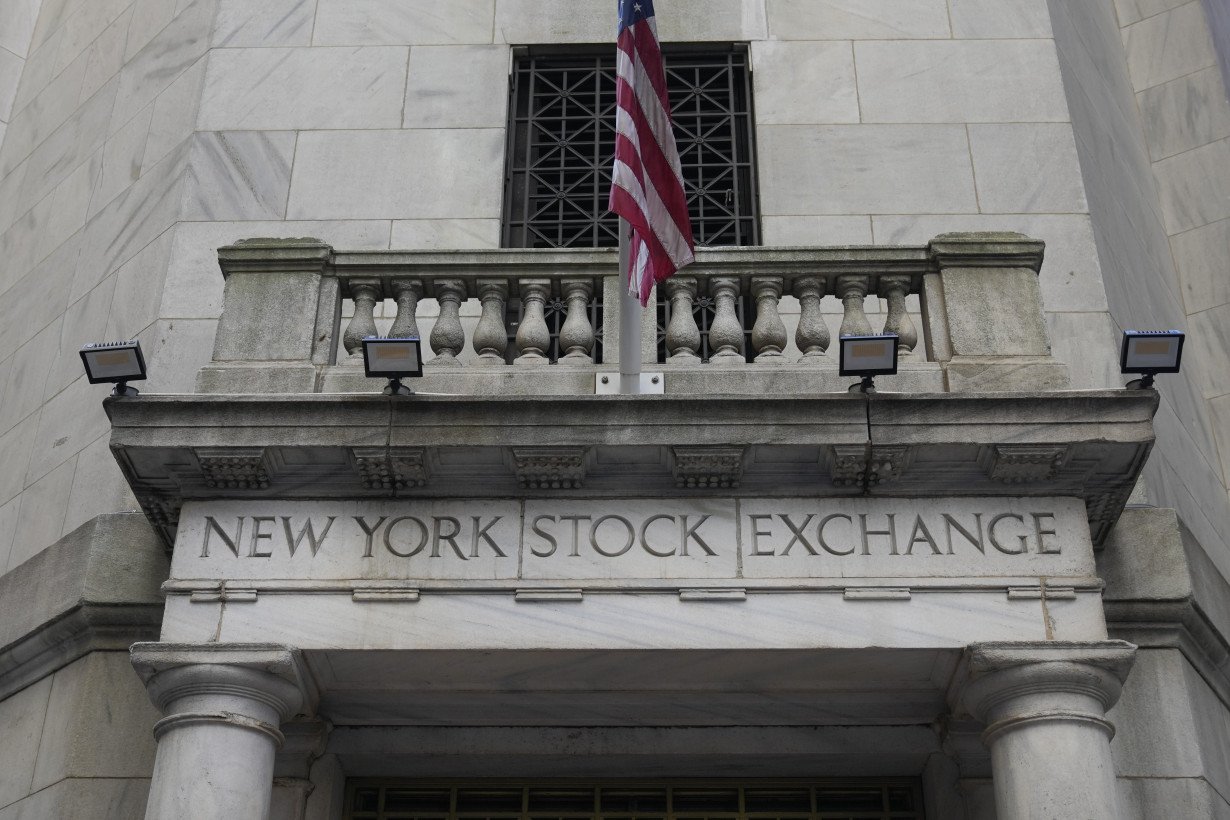
___
AP writers Matt Ott, Yuri Kageyama and Niniek Karmini contributed to this report.

 Trump has begun another trade war. Here's a timeline of how we got here
Trump has begun another trade war. Here's a timeline of how we got here
 Canada's leader laments lost friendship with US in town that sheltered stranded Americans after 9/11
Canada's leader laments lost friendship with US in town that sheltered stranded Americans after 9/11
 Chinese EV giant BYD's fourth-quarter profit leaps 73%
Chinese EV giant BYD's fourth-quarter profit leaps 73%
 You're an American in another land? Prepare to talk about the why and how of Trump 2.0
You're an American in another land? Prepare to talk about the why and how of Trump 2.0
 Chalk talk: Star power, top teams and No. 5 seeds headline the women's March Madness Sweet 16
Chalk talk: Star power, top teams and No. 5 seeds headline the women's March Madness Sweet 16
 Purdue returns to Sweet 16 with 76-62 win over McNeese in March Madness
Purdue returns to Sweet 16 with 76-62 win over McNeese in March Madness
